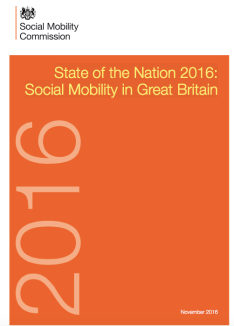At almost every opportunity, during the attempted structural reform of Initial Teacher Education over the last six years, I (and no doubt many others) have repeatedly tried to raise the issue of the unintended consequences of reform upon new teacher quality (for example see here) . This includes the quality of trainee teachers, the quality of their training, the quality of their teaching and the quality of their experiences.
Quite simply, in my view there should be a relentless focus on quality in ITE, yet the rapid policy turbulence has often proved a huge distraction from such matters. Such a focus on quality should however go beyond Ofsted criteria, beyond any simple DfE metric, beyond the Good Teacher Training guide and beyond any calculation of allocations of places.
Subsequently, I have had little time for new or even established providers who may pay lip service to quality or who undermine the sector with their cheap and cheerful ‘training’ packages or hints and tips to becoming a teacher. Teacher Education is a serious business and as such I particularly have little time for the government reforms which have paid little or no attention to quality or that have masqueraded as addressing quality issues when in fact doing the complete opposite.
So why the seriousness? It is simple – we live in a divided country where education remains one of the key opportunities for addressing inequality both through educating about such inequalities but also through increasing social mobility through ensuring children have access to high quality teachers and an opportunity to engage in a broad set of educational experiences.
In this context it is pleasing to see the profile of initial teacher education raised in last weeks State of the Nation 2016: Social Mobility in Great Britain report. However in reading the report I do have some concerns as the content appears to lack a nuanced understanding of Initial Teacher Education – which makes me wonder where they have taken their advice from?

Whilst much of the ambition within the report is admirable, the understanding of the politics and practice of ITE is evidently limited. As consequence if some of the proposals in the report were adopted they could lead to a series of further unintended consequences (if you want a recent potted history of unintended consequence in ITE just read trough this blog to see the way policy and practice goes wrong (e.g. recruitment controls)). The reality is we are not short of policy backfiring in ITE, either through sheer naivety or in the worst cases policy driven on the basis of naïve ideological premise.
One particular suggestion in the State of the Nation 2016 report that is however worth exploring further is the suggested reforming of the recruitment and distribution of new teachers. The report suggests that the School-Led approach to teacher training is not working to get the quality and numbers of teachers into the schools that need them most. Now this is partly correct (but not completely) but the report seems to suggest that because this is the case the Government should fundamentally reform the process, which recruits and distributes new teachers across the country?
Now this seems a solution to the wrong problem at the wrong time. Equally this does not address the quality issue that I have previously been referring to; this is potentially a misguided mechanical solution to complex problem. It would also seem this is a proposed solution to one aspect of the ‘School Led’ system which seems to ignore the greater need for high quality initial teacher education which educates about social mobility and works to address social mobility issues.
Within the current ‘ School Led’ system the emerging incentives are not to deal with system wide issues rather they are to address individual institution (alliance or chain) aims often potentially at the expense of the broader system needs (again I have previously blogged about this). So School Direct and Teaching School alliances of schools, Multi Academy Trusts and Academy chains often (quite deliberately as part of the government strategy) appear to be competing against each other.
At the same time the report fails to realize that aspiring teachers are now also consumers of training. They are being charged £9k for their training and as such they have a choice about the type of school they want to train in (if they follow a School Led route).
Ultimately, we appear to have two forms of recent policy history both competing against each other whilst also neither appears to be addressing the underlying issue of addressing the broader issue of social mobility. In this context it also needs to be remembered that School Direct schools also commission providers (HEI’s or SCITTs) to train their teachers and inevitably this involves financial incentives which can further detract from addressing the quality issues and social mobility agenda.
Therefore the proposal to have a national recruitment and allocation system would have to reconcile the often ill-conceived basis of which the School Led system was founded (which often had a rhetoric about quality). It would also have reconsider student fees (which is a suggestion) and fundamentally reconsider the entire structure of Initial Teacher Education whilst also hopefully addressing the wider quality issues which don’t appear to be understood or addressed in the report.
In many ways if some of the suggestions were adopted and developed you could propose the ‘Nationalising of Initial Teacher Education’ as one way of beginning to address the issue of social mobility and quality through ITE. Such a move would be significantly diverting away from the pseudo marketised system of teacher education that has emerged over recent years and a significant movement away from the state loosening its grip of control. However if the government genuinely wishes to partly address social mobility through initial teacher education then there has to be some radical rethinking of current policy.
